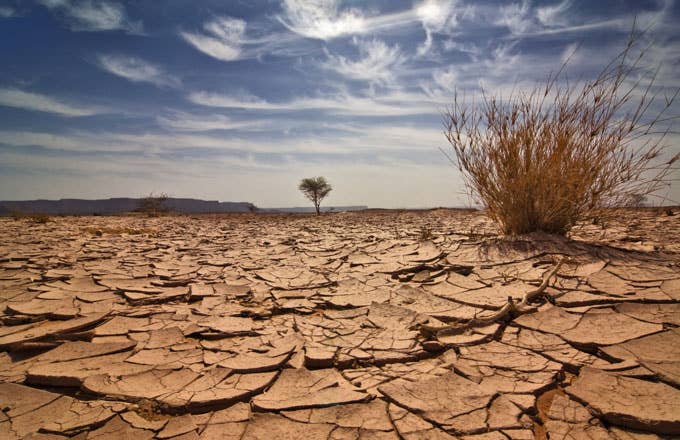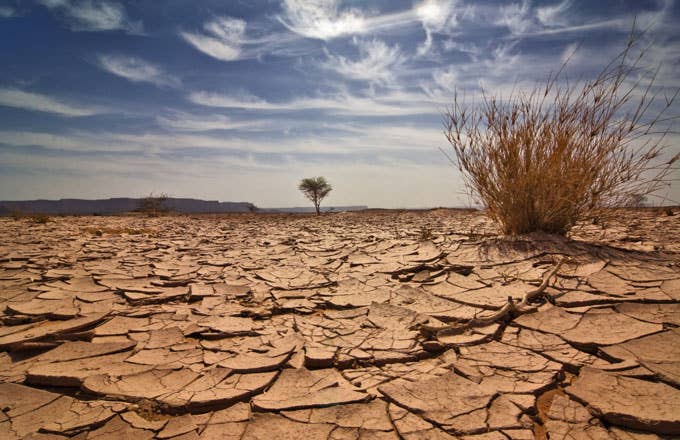
According to analysis put together by a Melbourne, Australia-based think tank, climate change is "a near- to mid-term existential threat to human civilization" which "threatens the premature extinction of Earth- originating intelligent life or the permanent and drastic destruction of its potential for desirable future development." The analysis goes on to describe what could happen in as little as three decades if the problem isn't seriously addressed and combated with a massive global effort. This, of course, is in line with previous warnings, but who knows, maybe this is the straw that will finally break the camel's back. Probably not.
This forecasting scenario came about after the Australian Senate inquired about the impact that climate change would have on the country's national security. Subsequently, it was endorsed by an ex-Australian defense chief and senior royal navy commander Chris Barrie. Barrie currently works for the Climate Change Institute at Australian National University, Canberra.
The report, as pointed out by Vice, says that the risk to the planet is far more dire than most people seem to think, and that the potential devastation is hard to comprehend because it falls “outside the human experience of the last thousand years.”
It also says, again like many previous reports, that the "point of no return" is quickly approaching, and could arrive around 2050. If/when this happens order would break-down both domestically and internationally. The report states that the only way to counter the impending disaster would be with an effort "akin in scale to the World War II emergency mobilization," which you already know is way too optimistic.
The report comes to the conclusion that the earth's current path will probably lock in a global heating temperature of at least three degrees Celsius. They go on to say that this would trigger an acceleration of ecosystems "including coral reef systems, the Amazon rainforest and in the Arctic." Additionally the report notes that even coming up short of this projection would still have disastrous consequences, writing "Even for 2°C of warming, more than a billion people may need to be relocated and in high-end scenarios, the scale of destruction is beyond our capacity to model with a high likelihood of human civilization coming to an end."
If you're somebody who needs to picture specific disaster scenes to be moved then, that's probably normal, but also the paper has you covered. More than a billion people could be forced to relocate, two billion would have to deal with major water scarcity, agriculture would be devastated in the sub-tropics, and food production would dramatically reduce.
In the report's foreward, Barrie writes that he told the Inquiry that "after nuclear war, human- induced global warming is the greatest threat to human life on the planet. Today’s 7.5 billion human beings are already the most predatory species that ever existed, yet the global population has yet to peak and may reach 10 billion people, with dire implications absent a fundamental change in human behaviour."

